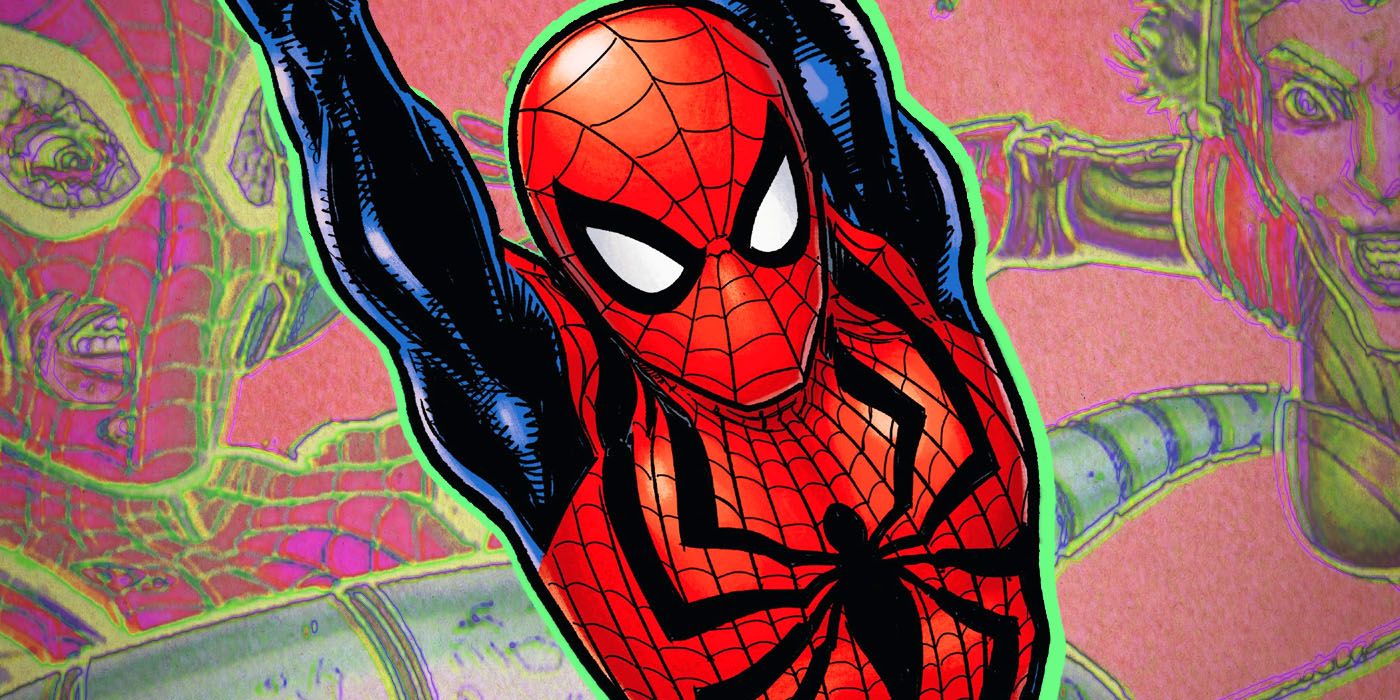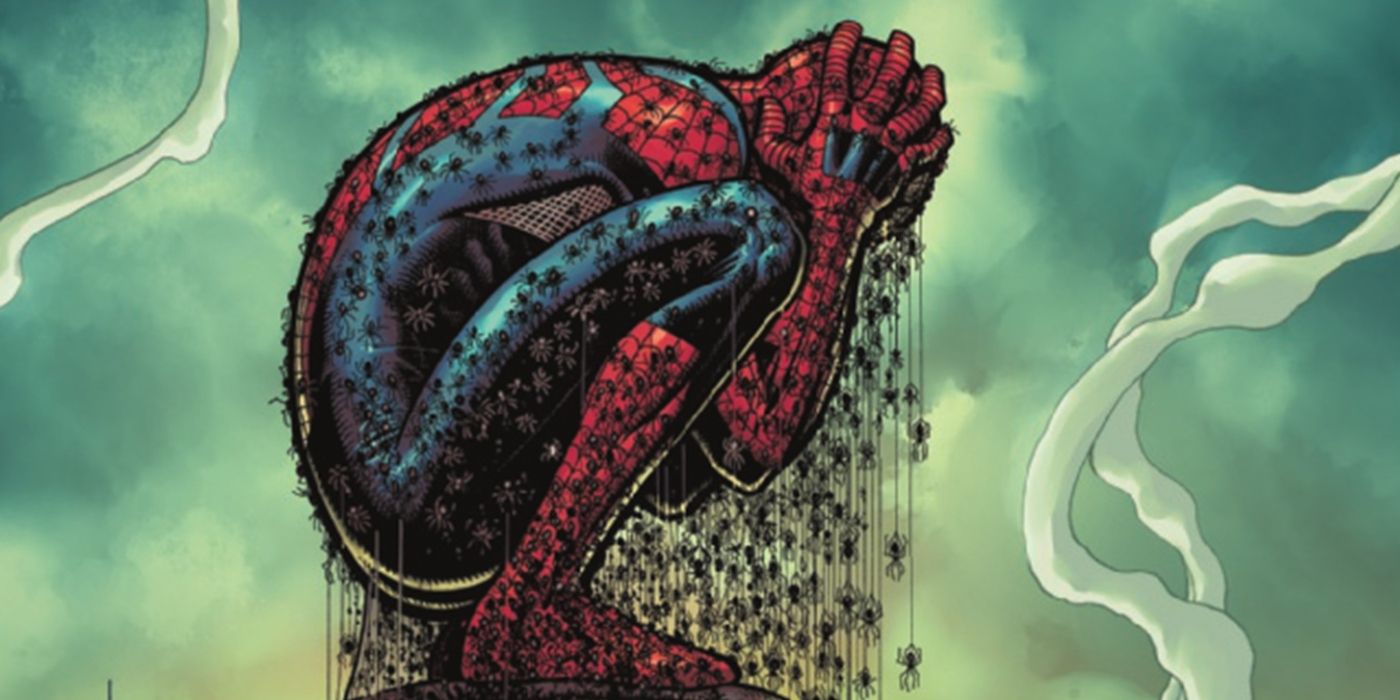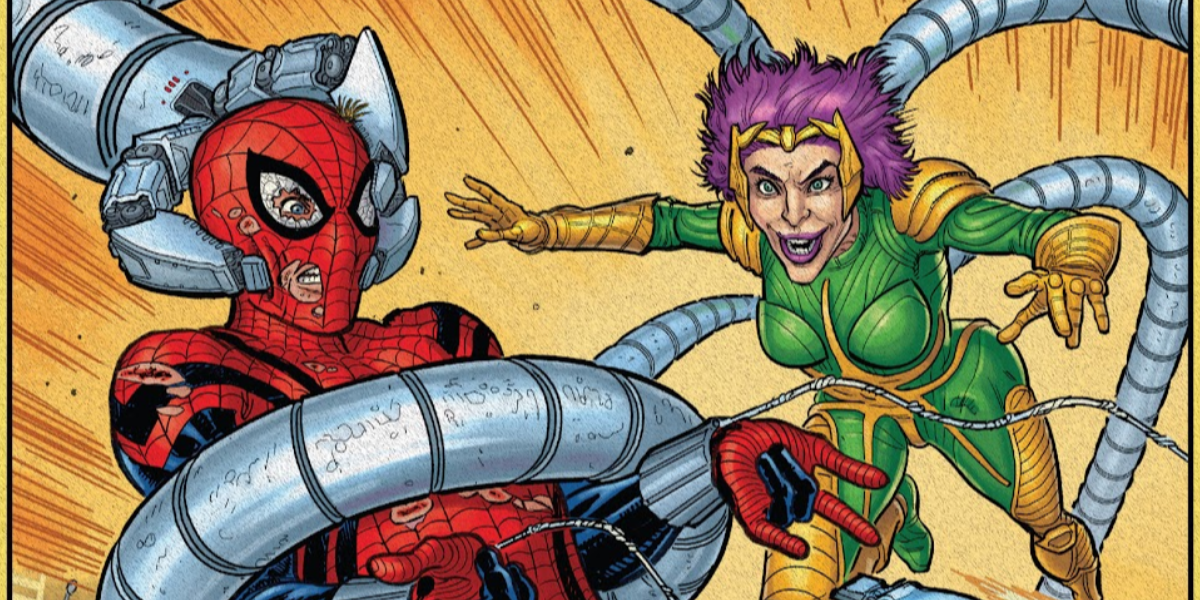WARNING: The following contains spoilers for Ben Reilly: Spider-Man #2 on sale from Marvel Comics
Most fans associate Spider-Man with his mild-mannered persona as Peter Parker, but he is not the only hero to don the webs and the witticisms for himself. His clone Ben Reilly served under the mantle himself during a period in the '90s known as the Clone Saga, when Reilly believed himself to be the original Spider-Man, and Ben Reily: Spider-Man revisits that era to shed new light on it that offers readers a look into areas they too seldom saw before.
Namely, that means Reilly's mental health. The clone character has always had a unique and interesting psyche that too rarely receives prolonged exploration, but his newest solo comic makes a strong case that he could be the most psychologically fascinating character in the tangled web of Spidey's supporting cast.
Many of the machinations that defined the Clone Saga period in Spider-Man's history involved plots within plots that left its heroes constantly questioning their reality. The core conceit of the story involved the discovery that not only did Peter Parker's clone from years prior, Ben Reilly, actually survive their initial bout, but that Reilly was himself the original and it was Parker who was the clone. That reveal itself turned out to be a lie and came in the midst of 1990s' Spider-Man comics that saw similar returns, deaths, and fake-outs involving everyone from Parker's parents, to Aunt May, to Mary Jane Watson, and even Parker and Reilly themselves.
In the time since then, the psychic toll the manifold layers of deceit took on Reilly in particular crafted him into a fascinating character in his own right. His appearances have alternated between portrayals as a picture-perfect superhero with a handle on his responsibilities even firmer than Parker's, and a tortured soul who either rends himself apart with doubt or else inflicts his pain on others as an outright supervillain. In Ben Reilly: Spider-Man, readers have the unique joy of seeing not only what Reilly's mind is like, with the solo comic rife from start to finish with his internal narration, but to enjoy that perspective, particularly during the period when Reilly was Spider-Man and should have been happier than ever.
The story puts Reilly's psyche at the central point of its focus, taking the hero to the infamous Ravencroft Institute for the Criminally Insane where psychiatrists and delusional villains provide twisted funhouse mirrors to Reilly's own mental health. The latest issue even raises doubts about Reilly's grasp on reality, implying he hallucinated an encounter with Scorpion when the villain was under surveillance at the Institute the whole time. Attending the plot is the aforementioned narration, where Reilly's constant self-doubt and the lingering feelings of imposter syndrome harangue him throughout the story.
The emphasis on psychology is not necessarily a new angle to Spider-Man comics but may prove one of the most effective takes on the thematic structure. Even the early days of The Amazing Spider-Man saw the hero visit a psychiatrist after fearing he hallucinated villainous encounters (which turned out to be a plot by Mysterio) and from the very beginning, questions of self-doubt harassed Peter Parker's narrations. Yet Ben Reilly's perspective puts an even deeper and meaningful spin on that tale, precisely because of the dramatic irony provided by the fact that the audience knows he really is an imposter. Set during the time Reilly thought he was the original, it is the reader alone who knows his every fear is legitimate.
But what seems to stand out as the undercurrent to the story's message is not that there is something wrong with Reilly pretending to be something he is not. It is instead that his doubt over his worthiness to don the mantle hinders him from becoming what he truly could be. The more he isolates himself from others and shelters himself away from having a normal life the more he seems to suffer, providing a fascinating message that could swing in any direction by the end of the story.
Psychological depth was never something lacking in Ben Reilly's tale. Even in the earliest days of the Clone Saga, writers explored just how different he became from Peter Parker during his years traveling the world in his attempts to find himself. What the latest comic adds to that is that the search to find oneself never truly ends, even when it seems like you have everything you ever wanted.



